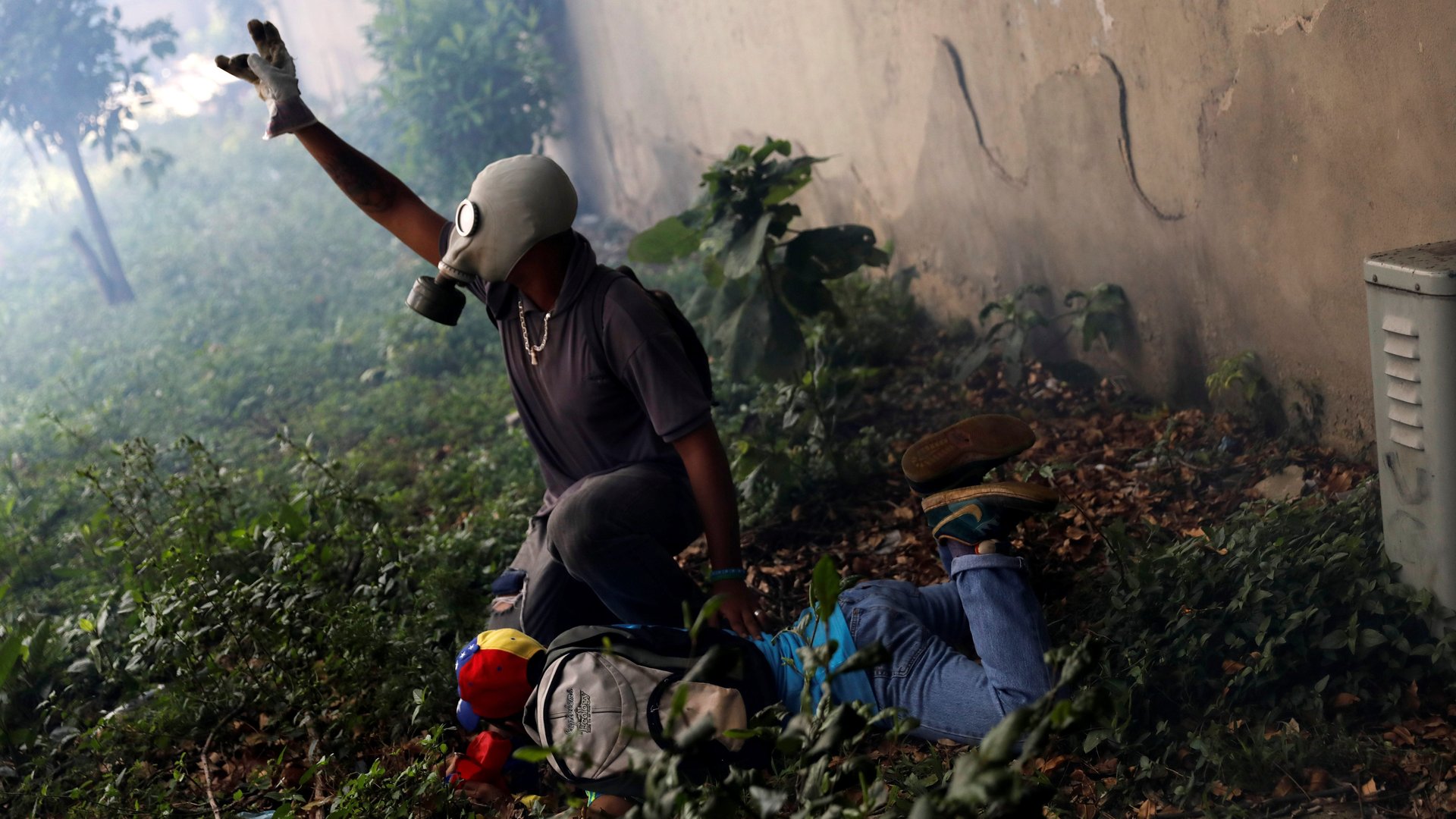Venezuela, where people are starving, gave Trump half a million dollars for his inauguration
There are many good uses towards which Venezuela’s government could put $500,000. Importing food for its starving citizens and replenishing medical supplies at threadbare hospitals come to mind. Instead, Venezuela chose to donate that amount to the organizers of US president Donald Trump’s inauguration celebrations, according to a new report (pdf) from the US Federal Election Commission.


There are many good uses towards which Venezuela’s government could put $500,000. Importing food for its starving citizens and replenishing medical supplies at threadbare hospitals come to mind. Instead, Venezuela chose to donate that amount to the organizers of US president Donald Trump’s inauguration celebrations, according to a new report (pdf) from the US Federal Election Commission.
Venezuelan president Nicolás Maduro didn’t personally sign the check. The money was given by Citgo Petroleum, an American subsidiary of Venezuela’s state oil company, Petróleos de Venezuela (PdVSA). But for all intents and purposes, PdVSA is an arm of the government.
Citgo, which owns several oil refineries and pipelines in the US, was originally an American company. One of its signs, outside Boston’s Fenway Park, has become a beloved city landmark. Even after PdVSA bought it in the 1980s, the company remained largely independent and preserved its American identity.
But since Hugo Chávez took office as president in 1999, the Venezuelan government has been using Citgo to fulfill political goals both domestically and internationally. Under Chávez, the Houston-based company essentially became a cash cow to fund the social programs of his Bolivarian revolution.
Citgo also provided the fiery populist a platform to upstage US president George W. Bush, whom he famously called a devil, donkey, and “Mr Danger.” In 2005, as Bush struggled to respond to the devastation from Hurricane Katrina, Chávez supplied heating oil from Citgo at a discount to poor Americans. Citgo continued the program until recently.
Now Citgo itself has become politicized. In December, before Trump took office, the Venezuelan government pledged about half of the company’s shares as collateral for a loan from Russian oil firm Rosneft. That has some US politicians worried about what happens if PdVSA defaults on that and other obligations—not unlikely, given Venezuela’s tattered national finances.
“This could leave Rosneft, a Russian company controlled by oligarchs with close ties to Vladimir Putin, in control of critical infrastructure in the United States,” reads an April 4 letter (pdf) to US Treasury secretary Steven Mnuchin sent by several US senators from both parties.
With those kinds of concerns, maybe Venezuela thinks that half a million dollars is a small price to pay for having an ally in the White House.